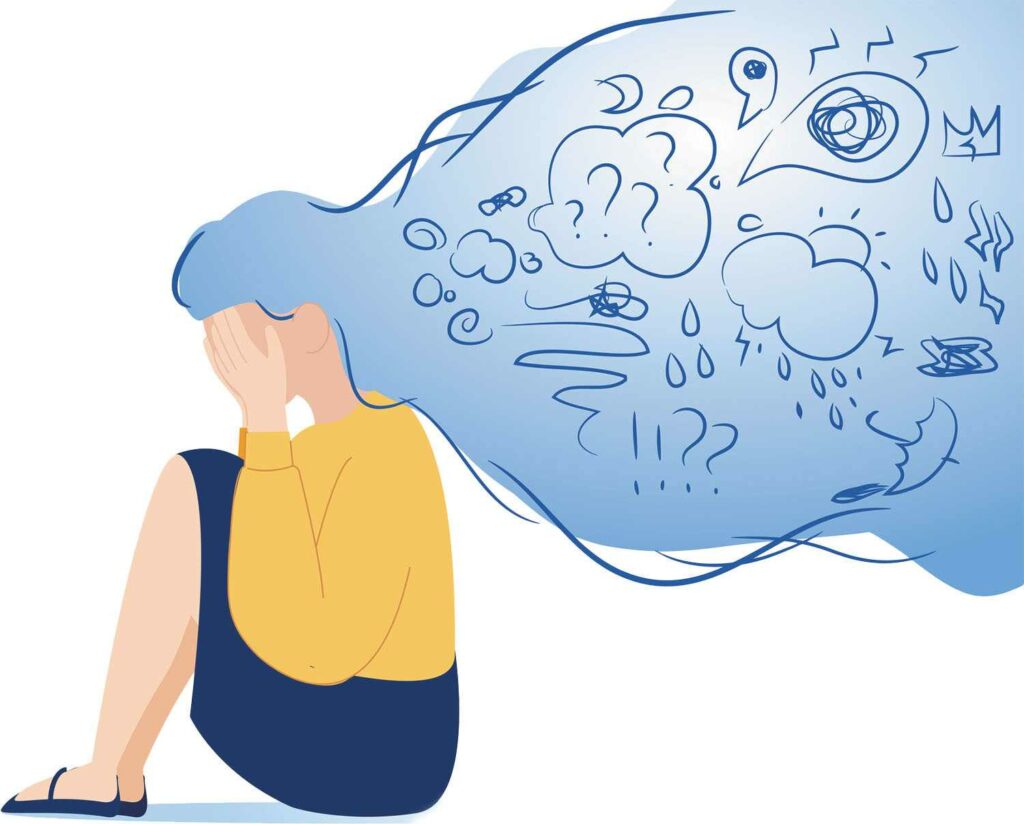There are many different compulsive behavior treatments available to those who suffer from this type of disorder. Some people may try medication, therapy, or a combination of both. In this blog post, we will discuss the 10 most effective treatments for compulsive behavior. Keep in mind that not every treatment will work for everyone, so it is important to find the one that works best for you.
Contents
Understanding Compulsive Behavior
 Compulsive behavior is an excessive urge to perform certain activities or engage in certain behaviors in order to relieve stress, feel better, or appease a particular emotion. It’s not the same as an addiction, although it can sometimes lead to addictions. Compulsive behavior can disrupt a person’s life. And negatively impact their relationships and mental health.
Compulsive behavior is an excessive urge to perform certain activities or engage in certain behaviors in order to relieve stress, feel better, or appease a particular emotion. It’s not the same as an addiction, although it can sometimes lead to addictions. Compulsive behavior can disrupt a person’s life. And negatively impact their relationships and mental health.
Compulsive behavior can take many forms and range from mild to severe. It can also include repetitive behaviors like hand washing, counting, or checking that have no obvious purpose other than to provide a sense of security or control. Other times it may involve seeking out pleasurable activities such as gambling, shopping, eating, or drinking to excess. Or, compulsive behavior can be a sign of an underlying mental health issue like obsessive-compulsive disorder (OCD).
It’s important to recognize compulsive behavior and the risks that it can pose. If someone is engaging in compulsive behavior, there are several compulsive behavior treatments that can help. Be sure to seek out professional help if you or someone you know is struggling with compulsive behavior.
Top 10 Compulsive Behavior Treatments
When the compulsive behavior has become extreme, it is necessary to seek professional help. Fortunately, there are many different types of treatments available that can help people better manage their behaviors and live healthier lives. Here is a list of the top 10 options:
Cognitive Behavioral Therapy (CBT)
The first and foremost treatment of compulsive behavior is cognitive behavioral therapy (CBT). CBT is a type of psychotherapy that helps people identify and change maladaptive beliefs and behaviors. During the course of this treatment, individuals learn to replace negative thoughts with positive ones and practice relaxation techniques such as mindfulness and deep breathing.
Dialectical Behavioral Therapy (DBT)
It is a type of treatment that focuses on helping people learn to accept themselves and manage their emotions effectively. During DBT, individuals learn how to use cognitive skills such as problem-solving and goal-setting to better manage their behaviors. In addition, patients can take part in group sessions and practice mindfulness meditation as part of their therapy.
Exposure and Response Prevention (ERP)
ERP is a type of treatment that focuses on exposing individuals to the situations or objects they fear while teaching them how to respond more appropriately. This process can help people replace their compulsive behaviors with healthier coping strategies. The therapist will gradually increase the level of the exposure until the individual is able to manage their fears and anxiety.
Acceptance and Commitment Therapy (ACT)
This treatment is based on the idea of accepting your current situation and committing to making changes that will lead to a better life. The goal of ACT is to help individuals develop a greater sense of acceptance and identify values that can guide their behavior. Patients learn how to practice mindfulness and recognize when their thoughts are causing them distress.
Medication
 Medication can also be used as part of a comprehensive treatment plan for compulsive behavior. Certain medications, like antidepressants, have been found to reduce symptoms of compulsions and allow individuals to better focus on therapy. It is important to talk to a doctor about any medications that are being prescribed to ensure they are safe and effective.
Medication can also be used as part of a comprehensive treatment plan for compulsive behavior. Certain medications, like antidepressants, have been found to reduce symptoms of compulsions and allow individuals to better focus on therapy. It is important to talk to a doctor about any medications that are being prescribed to ensure they are safe and effective.
Family Therapy
Another important form of treatment for compulsive behavior is family therapy. This type of therapy involves involving the family in the process of understanding and managing the disorder. Family members can learn how to support their loved ones while also learning strategies to cope with the situation.
Habit Reversal Training
Compulsive behavior treatments also include habit reversal training (HRT). This treatment focuses on helping individuals identify triggers that lead to their compulsive behavior and develop skills to replace the unwanted behavior. During HRT, patients practice relaxation techniques such as deep breathing and progressive muscle relaxation.
Relaxation Techniques
In addition to different therapies, relaxation techniques can also be used to help manage compulsive behavior. Techniques such as progressive muscle relaxation, guided imagery, and mindfulness can all help individuals reduce their anxiety levels and better cope with situations that may trigger compulsions.
Support Groups
Support groups are an important part of any treatment for compulsive behavior. These groups provide a safe place where individuals can share their experiences and learn from others. In addition, members of the group can provide support and understanding for each other as they work towards overcoming their disorder.
Self-Help Strategies
Finally, self-help strategies are an important part of any treatment plan. Individuals who suffer from compulsive behavior should look into resources such as books, online forums, and support groups that can help them better understand their disorder and develop skills to manage it. Self-help strategies also include creating a daily routine that allows for plenty of rest, exercise, and relaxation activities.
Overall, there are many different treatments available for compulsive behavior that focus on helping individuals gain control over their thoughts and behaviors. It is important to work with a mental health professional to find the right approach for each individual. With guidance and support, individuals can learn healthy ways to cope with their compulsions and live more fulfilling life.
How Can I Treat My Compulsive Behavior On My Own?
 This might be one of the hardest tasks to accomplish, but it can be done. Here are a few tips that can help you begin the journey to treating your compulsive behavior:
This might be one of the hardest tasks to accomplish, but it can be done. Here are a few tips that can help you begin the journey to treating your compulsive behavior:
1. Identify triggers – The first step in treating compulsive behavior is to identify what triggers it, whether it be stress, boredom, or certain people or situations. Once you have identified the triggers, try to avoid them as much as possible.
2. Learn relaxation techniques – Learning relaxation techniques, such as mindfulness meditation or progressive muscle relaxation, can help reduce the urge to act out your compulsions.
3. Work on coping skills – Working on developing healthy coping skills, such as distraction and problem-solving, will help you manage your anxiety and stress levels in a healthier way than acting out your compulsive behavior.
4. Seek support – It can also be useful to seek professional help and/or join a support group so that you are not trying to tackle this on your own. Having someone experienced in compulsive behaviors can offer invaluable guidance and advice during difficult times.
5. Track your progress – Finally, it is important to track your progress in managing and treating your compulsive behavior. Writing down the thoughts and feelings you experience before and after acting out can help you identify patterns and better manage them in the future.
By following these simple and effective tips, you can take the first step toward managing your compulsive behavior. With perseverance and a positive attitude, you will be able to learn healthier coping skills and develop strategies to treat your compulsive behavior.
Conclusion
In conclusion, compulsive behavior treatments are an effective way for those who are afflicted by compulsive behavior to live a more normal life. While not a cure-all, these treatments can help reduce the intensity and frequency of compulsive behaviors and provide people with tools to better manage their condition.
It is important to consider all available treatment options when seeking help for compulsive behavior. As each patient may respond differently to different types of treatment. Additionally, it is important for those who are being treated for compulsive behavior to seek out support from family and friends. This can often be an integral part of any successful treatment plan.
For more information and guidance, please contact MantraCare. OCD is a mental health disorder characterized by obsessions and compulsions. If you have any queries regarding Online OCD Counseling experienced therapists at MantraCare can help: Book a trial OCD therapy session


